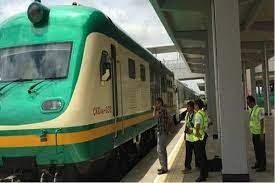Beginning on November 1st, the Nigerian Railway Corporation (NRC) intends to introduce an electronic ticketing system for the standard gauge portion of its network. During a recent interview, Fidet Okhiria, who serves as the Managing Director of NRC, made this announcement. Implementing an electronic ticketing system was a big step forward in Nigeria’s efforts to modernise and simplify its rail transportation infrastructure.
On schedule, the last testing phase for the platform will be finished on October 25th of this month. Before it is made available to the general public, the electronic ticketing system will, at first, only be usable by a restricted number of people for final testing. The transfer to the new system will be made as painless and risk-free as possible, thanks to this staged approach.
The capacity of the new system to send revenue from ticket sales straight into the coffers of the government constitutes one of the most significant advantages of the system. In doing so, it considerably minimises the potential for corruption and revenue leakage, which is a critical step in enhancing the railway system’s integrity and efficiency.
Read also: China pledges support to complete major Nigerian rail projects
Nigerian railway modernisation plan
The Nigerian Railway Corporation (NRC) has started using electronic tickets, which is a big step toward making train travel easier and faster for everyone in the country.
More information about how the new system will work is still being gathered, but it will likely have many places to buy things, like cell phones, designated stores, and train stations, similar to systems that have worked well in India and Bangladesh.
NRC’s move to e-tickets aligns with Nigerians’ growing need for modern, easy-to-use, and efficient transportation choices. Also, the NRC wants to add more train services to more states. The goal is to encourage train service within cities and make travel easier for more people.
E-ticketing is a big step towards making rail travel more pleasant and efficient for the population of Nigeria, and its adoption by the Nigerian Railway Corporation (NRC) is a significant step in that direction. In a broader perspective, rail transit in Nigeria is growing increasingly popular, and the adoption of e-ticketing by the NRC is one of the most significant steps in that direction.
It is anticipated that the most recent system would allow many points of purchase, including mobile devices, designated stores, and train stations, in a manner that is analogous to successful models used in countries such as India and Bangladesh. While exact specifics regarding the operation of the most recent system have not yet been released, they are forthcoming.
The transition toward electronic ticketing by the Nigerian Railway Corporation (NRC) is in line with the rising need in Nigeria for transportation solutions that are contemporary, easily accessible, and highly effective. The NRC also has plans to expand train services to several states, with the intention of increasing intra-city rail operations and making train travel more accessible to a wider population. This expansion of train services is part of the NRC’s larger goal of making train travel more accessible to a wider population.
More on the e-ticketing launch
The electronic ticketing system will initially be implemented on the route between Abuja and Kaduna in order to address existing difficulties, such as the requirement that customers physically visit train stations in order to purchase tickets. Travellers will be able to purchase their train tickets at least forty-eight hours before their scheduled departure time from the convenience of their own homes or places of business if e-ticketing is available.
E-ticketing has already been successfully implemented on the Abuja-Kaduna route, and it is planned to roll out on the Lagos-Ibadan and Itakpe-Warri lines by the end of November. This success was previously observed in installing e-ticketing on the route between Abuja and Kaduna.
Fidet Okhiria revealed, in addition to the new system of railway service, that staff personnel caught on camera taking fares for train journeys in Ibadan along the Lagos-Ibadan Standard Gauge have been fired. This was in accordance with the recommendation that was made by a disciplinary committee after looking into the situation. These actions, which were conducted in accordance with the norms and regulations that the firm had previously set, served as a deterrence to other members of the staff.
In addition, Okhiria disclosed that there are plans to accelerate rail travel on the Lagos-Ibadan Standard Gauge track from the current pace of 40 kilometres per hour to an even faster speed of 80 kilometres per hour. Because of the increased speed, he cautioned against engaging in activities such as trade or playing on the railway lines. He also emphasised the significance of safety and the necessity of adhering to safety regulations.
It is anticipated that the implementation of electronic ticketing will reduce the amount of human intervention, simplify the process of revenue collection, and lessen the likelihood that staff will seek to manipulate fee prices. After an initial phase in which access was restricted, the online ticketing system will eventually be made accessible to the whole public.
